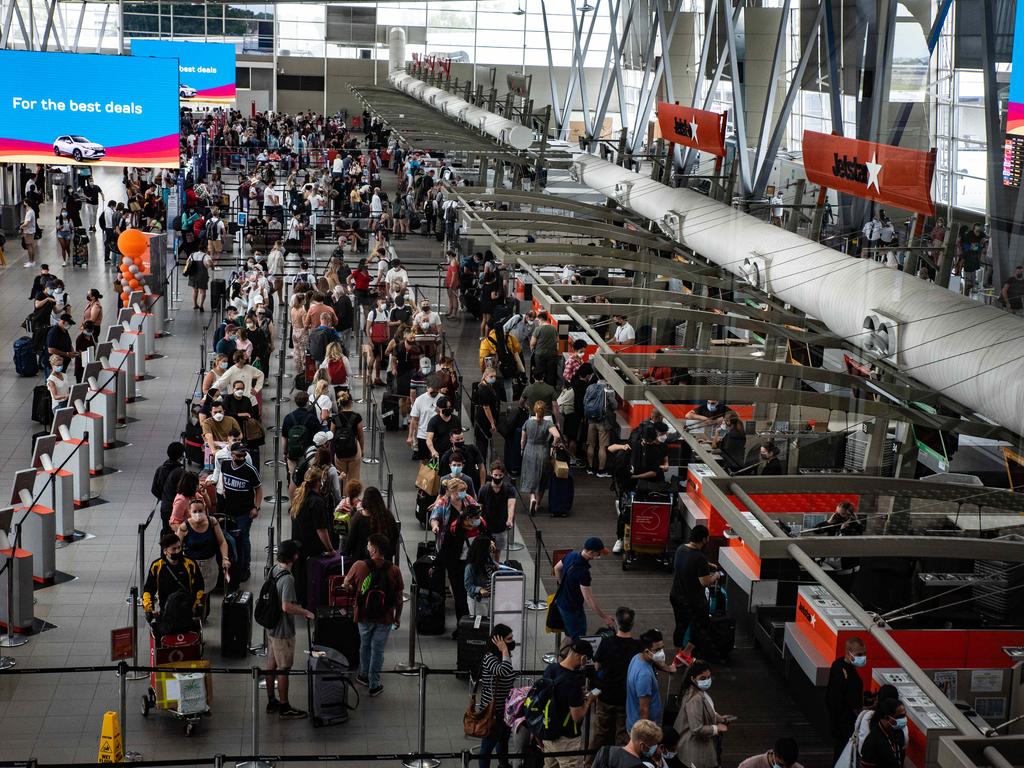Rapid Covid test boss John Kelly of Atomo Diagnostics fears Australia ’will be left behind’ as Omicron spreads


You need to start planning for more rapid testing now.
John Kelly, the chief executive of ASX-listed medtech Atomo Diagnostics, says Australia needs to catch up with the rest of the world – particularly Europe – when it comes to widespread use of rapid testing and accept that it can play an important role in the Covid healthcare response.
With testing sites around the nation swamped and results taking days to arrive, Kelly says it is time health authorities rethink their reliance on costly lab, or PCR, testing for Covid.
“If the current situation doesn’t make that clear – I’m not sure what would. Rapid testing is one of the key pillars of Covid response,” he says.
“There’s no national rapid test strategy and we’ve been waiting two years for this to happen. I don’t understand why as a nation we are not better prepared,” he says.

His comments come amid a backdrop of a crippling backlogs at Covid testing sites just as Omicron case numbers enter the thousands. Testing sites are being swamped by genuine cases, but also those deemed a contact from attending the same venue. Others need tests to travel, while many are looking for peace of mind to visit older relatives. The pressure building on the system is resulting in disastrous errors, including up to 1000 NSW patients being given the wrong PCR test results.
Queensland on Tuesday held the line over visitors still needing a negative PCR Covid test to enter the state.
Atomo, which develops and commercialises antigen-based tests, has been leading the charge in Australia for wider take-up of rapid tests by government to ease the pressure on the lab-based PCR testing. But talks have so far generated little interest.
At times Atomo has found itself wedged between Canberra and the state governments both saying the other is responsible for pushing rapid tests, leaving Australia with one of the lowest adoption rates in the developed world.
Rapid testing has become common across Europe, with many countries offering free government-funded tests. Tests are available over the counter or at specially set-up testing centres to control standards. They are handed out by retailers and at major venues.
However, as Omicron cases have spread across Europe through December, some countries have started to see shortages.
While the Sydney-based Atomo sells its testing kits to governments overseas, in Australia its customers are largely limited corporates looking to provide rapid testing for staff. Atomo is also in the final stage of securing regulatory approval for its home-testing kits.
The reasons for slow take-up are complex, but for Kelly it boils down to a structural imbalance across public health, with pathology operators deeply embedded in how public health is funded. The status quo dominates. Pathology labs receive up to $110 for every Covid PCR test. Consumers or business often pay the full rate of the $15-20 per unit for the rapid test.

ASX-listed pathology providers such as Sonic Healthcare or Healius have been major beneficiaries from Covid-19 testing in Australia. Sonic has conducted more than 36 million Covid PCR tests both here and offshore since the beginning of the pandemic. In August Sonic reported record profit and revenue boosted by testing contracts. Healius’s test volumes have averaged above 40,000 per day.
As people line up at testing sites, Kelly sees incredible waste.
While a lab test can provide a highly accurate reading at any point in time, users can have confidence in the rapid testing when it is performed correctly, he says. Multiple tests over several days can give Australians even higher levels of confidence in the accuracy of rapid test results.
With the PCR testing system facing extreme pressure, particularly in NSW, the results coming back are of little use for thousands of people who are causal contacts or need the test to travel, Kelly argues.
“Unless you sat in the house for up to five days, the results are meaningless. It’s pretty much a waste of time and effort for everybody, because you don’t get the result quick enough for it to be actionable,” Kelly says.

Australia will soon find a bigger problem looming with testing.
The US government is in the process of signing contracts for 500 million rapid tests to be available free of charge and to be rolled out as soon of possible.
This is putting intense pressure on supply chains and it’s likely to see substantial stock diverted into the US market as producers struggle to keep up on top of additional demand during the Omicron spread.
This is making Australia more reliant on several testing kits imported from China.
Kelly says Atomo has guaranteed access to 20 million of its specialised kits though its US manufacturing partner, but shortages will be felt.
“There is going to be a crunch on the availability of good-quality tests – not cheap ones, but the good ones. I think being able to guarantee Australia 20 million tests over the next 12 months is really important.”
Australia is also missing out on local manufacturing opportunities.
Atomo is looking to develop its own manufacturing but talks with state governments as well as Canberra have failed to spark interest in supporting local medtech.
“There’s just not real strategic appetite to invest in Australian technology.
“The US government is spending billions of dollars making sure that it is able to make tests in the future and not only for the Covid pandemic but also future pandemics that are coming. Where’s the Australian government’s response to that?” Kelly says.
johnstone@theaustralian.com.au






The boss of one of Australia’s leading rapid test makers has a simple message for public health authorities.